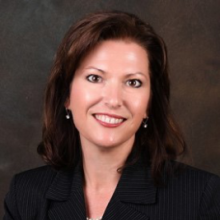Three county Farm Bureau member leaders this week joined MSU Extension and AgBio Research directors George Smith and Quentin Tyler before the House Agriculture and Natural Resources Appropriations Subcommittee, speaking in support of a $16 million state funding request to enhance education, outreach, and research efforts to continue deployment of technologies that promote environmental sustainability.
MSU and supporters are calling it the Securing Environmentally Sustainable Michigan Agriculture (SESMA) Initiative.
“Our farmers and growers recognize the challenges of the future in terms of climate change and the positive role that agriculture can play in not only securing a safe and secure food supply, but also in contributing directly to climate change mitigation and adaptation,” Smith said. “The three overarching areas for this initiative determined by our industry partners represent shared needs for future research efforts across all of Michigan’s plant-based commodities.
“These priority areas are soil and plant health, water quantity and quality and precision technologies.”
In addition to the MSU leaders, the committee heard from:
- Antrim County Farm Bureau member Juliette King McAvoy, representing the Cherry Marketing Institute Board and Michigan Agriculture and Rural Development Commission,
- Michigan Farm Bureau At Large Director Doug Darling, a Monroe County crop famer, and
- Kent County Farm Bureau member Bruce Klamer, of V&W Farms and chair of the Michigan Onion Committee.
Darling detailed the conservation practices he’s implemented, and the outcomes achieved on his farm, which for years has been verified through the Michigan Agriculture Environmental Assurance Program. He also shed light on the costs and economic realities of on-farm precision technologies.
“These technologies make farmers more efficient and better managers for the environment, but there is a cost,” Darling said. He named examples like rising input costs, subscription and service fees, lack of skilled labor and more.
“We have a number of challenges and that's where this program that Michigan State is proposing can help benefit all of agriculture,” he said. “That way these issues and the costs aren’t a hindrance to the farmers, young or old and large or small, from adopting these current technologies which can benefit and improve the environment, in our soil or water in our air.”
The request for state funding by MSU and partner organizations includes an initial $16 million investment, followed by $10 million in annual recurring funds to sustain the program.
Supporters say the initiative will address key gaps in talent and faculty expertise at MSU and offer a new competitive grants program to target long-term research and on-farm outreach. This would include demonstration projects led by MSU faculty and MSU Extension personnel designed to bolster soil and plant health, soil carbon sequestration and protection of water quality and efficient use of it, and development and deployment of precision technologies to promote environmental sustainability of Michigan agriculture.
“We are grateful that MSU and our partnering organizations were given the opportunity to share how the SESMA Initiative will have direct impact to Michigan agricultural producers,” said MFB Government Relations Manager Rob Anderson. “We’re still early on in the process, but this issue is a priority for members – they’ve been talking about it with their state legislators – and we’re hopeful to see it move forward in the budget.”
Organizations going on record at the hearing to support the proposal included representatives from MFB, Michigan Agri-Business Association, Michigan Nursery and Landscape Association, Michigan Vegetable Council, Cherry Marketing Institute, Michigan Potato Industry Commission, and Michigan Asparagus Advisory Board.
The House Agriculture and Natural Resources Appropriations Subcommittee is entirely new this legislative session and in addition to Chair Brixie includes Reps. Greg Alexander (R-Carsonville), Ken Borton (R-Gaylord), Jasper Martus (D-Flushing), Donavan McKinney (D-Detroit), Denise Mentzer (D-Mt. Clemens) and Ranjeev Puri (D-Canton).
Mentzer thanked the presenters after the hearing saying she was, “amazed at the presentations here today talking about the technology that is now being used to farm and it’s really impressive – I had no idea it was that extensive so that was really great to learn.”
Share Story
Article Tags


